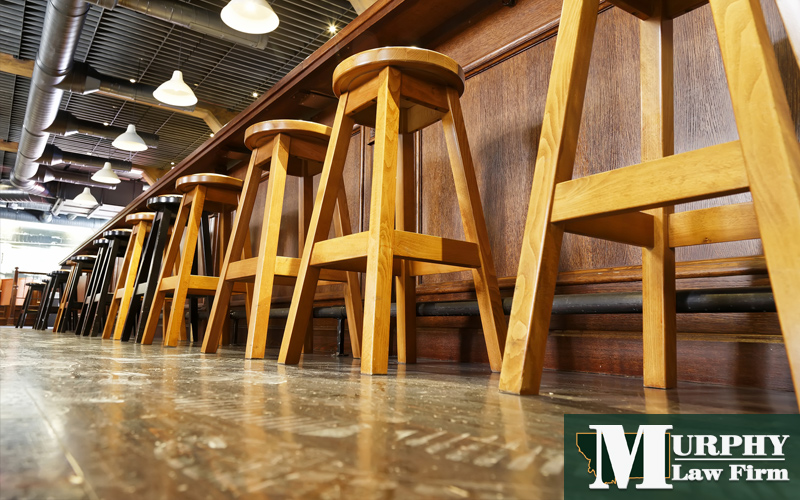Rules and liability for serving alcohol and drunk driving in Big Sky country
Most states, including Montana, have dram shop laws. A dram shop is a traditional establishment where alcohol is sold to customers in small amounts. A “dram” is a unit of measurement, equal to ⅛ of a fluid ounce, commonly used to measure out spirits or liquor.
Nowadays, the term dram shop is commonly used to describe any establishment that serves alcohol to customers such as a bar, brewery, distillery or restaurant. Dram shop laws establish liability for people and businesses that serve alcohol to an individual who causes harm or injury to a third party in a drunk driving accident.
Dram shop laws in Montana
Montana Revised Statute 27-1-710 outlines the “liability of a person or entity that furnishes an alcoholic beverage for injury or damage arising from an event involving the person who consumed the beverage.” Serving alcohol alone is not grounds for liability. The service must fall under the following circumstances:
- Serving alcohol to a person under 21 years of age, when the server knew the person was underage or served to a person under 21 and didn’t make a reasonable effort to determine the customer’s age.
- Serving alcohol to a person who is visibly intoxicated.
- Forcing or coercing a person to consume alcohol or falsely telling a customer that their beverage is non-alcoholic.
In addition to these circumstances, the injured person must also prove the “injury or damage wholly or partly arising from an event involving the person who consumed the beverage.”
For example, say a bartender serves alcohol to a person who is visibly intoxicated, then this customer leaves the bar and is involved in a drunk driving crash that injures another person. Under Montana’s dram shop law, the injured person could sue the bar for damages related to the crash.
The purpose of dram shop law is to prevent overserving, serving to minors and coercive consumption.
Can private social hosts be held liable under dram shop law?
Montana’s dram shop law applies to a person as well as an entity. This means even a private citizen hosting a party can be liable under dram shop liability. Unlike a business, a person exposes themselves to personal liability. A properly formed business limits the liability of owners or shareholders, but a private person is not afforded such protection.
For example, say Dave holds a party at his home. Dave invites a number of people over to celebrate his new promotion at work. One of the partygoers is Steve. Dave provides an open bar to his guests. Early in the night, Steve starts drinking heavily. Dave keeps pouring drinks for Steve, even after he is visibly intoxicated. By the end of the night, as others begin to leave, Steve says that it’s time for him to go home. Dave walks Steve to his car and Steve drives away. About a block from Dave’s home, Steve hits a pedestrian who is crossing the road.
In this scenario, Dave (the person who threw the party) could be held liable for the pedestrian’s injuries because he continued to serve alcohol to Steve and allowed him to drive, even though he was visibly intoxicated.
Statute of limitations for dram shop cases
Under Montana law, a person wishing to sue under dram shop law must give notice of intent to sue within 180 days of sale or service. If a person fails to give notice within the 180 days, they are barred from filing the lawsuit.
After giving notice, the injured person has a statute of limitations of 2 years to file a lawsuit. If an injury claim is not filed before this deadline, the action can be dismissed.
How to prevent drunk driving
The best cure is prevention. If you serve alcohol, take protective measures. Limit the number of drinks a person can get. Teach those serving how to recognize the signs of intoxication. Aggressive age verification also hedges the dram shop liability. These tips go for both social hosts and for businesses.
If you are a social host, consider having a professional run the bar at large and important events. This takes the pressure of dram shop liability off your shoulders. These companies, unlike the social host, have insurance and training to prevent and hedge alcohol abuse.
Whether it’s at a bar or at a home party, allowing a person to drive drunk is socially irresponsible and can, in some cases, result in civil liability. The prevention of drunk driving is a group effort, which everyone can play a role in preventing.
If, however, you are injured in a drunk driving accident and you’d like to see if the bar can take some responsibility, you’ll want a knowledgeable and experienced lawyer on your side.




